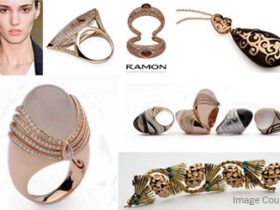
Morocco’s Main Businesses
Morocco, located at the crossroads of Europe, Africa, and the Middle East, boasts a diverse and thriving economy. Its business sectors reflect a mix of traditional industries and modern enterprises, underpinned by strategic geographic positioning, abundant resources, and government policies promoting investment and development.
1. Agriculture and Agri-business
Agriculture is a cornerstone of Morocco’s economy, employing a significant portion of the population. Key exports include citrus fruits, olives, tomatoes, and argan oil. Morocco is the world’s largest producer of phosphates, a key ingredient in fertilizers, boosting its role in global agricultural supply chains. The agri-food industry has also grown, producing processed goods like canned vegetables, olive oil, and fruit juices for export.
2. Tourism
Tourism is a major revenue generator, attracting millions annually to cities like Marrakech, Casablanca, and Fez, along with natural attractions such as the Atlas Mountains and Sahara Desert. Morocco’s diverse culture, historic architecture, and culinary experiences make it a global tourist hotspot. Investments in luxury hotels, ecotourism, and infrastructure further fuel this sector’s growth.
3. Textiles and Apparel
Morocco’s textile and apparel industry is a key driver of its exports, catering primarily to European markets. The country’s proximity to Europe provides a competitive edge, enabling fast deliveries and cost-efficient production. The industry focuses on producing high-quality garments, fast fashion, and technical textiles.
4. Mining and Energy
Morocco holds significant reserves of phosphates, making it one of the largest global suppliers. Beyond mining, renewable energy has gained prominence, with large-scale solar and wind projects like the Noor Ouarzazate Solar Complex positioning Morocco as a leader in clean energy transition in Africa.
5. Automotive and Aerospace
The automotive industry has become Morocco’s largest export sector. It hosts global manufacturers like Renault and Stellantis, producing vehicles and automotive parts for European and African markets. Similarly, the aerospace sector has seen robust growth, with companies like Boeing and Airbus establishing operations for aircraft components manufacturing.
6. Technology and Outsourcing
Morocco is emerging as a technology and business outsourcing hub. Cities like Casablanca and Rabat host numerous call centers, IT firms, and shared service centers catering to global companies. The government supports this with initiatives to enhance digital infrastructure and skills development.
7. Fishing and Maritime Industry
With a long Atlantic coastline, Morocco has a vibrant fishing industry. It is one of the largest exporters of sardines globally, alongside seafood products like octopus and shrimp. The government’s Blue Economy strategy promotes sustainable growth in fisheries and maritime activities.
8. Real Estate and Construction
Rapid urbanization has driven growth in real estate and construction, particularly in commercial buildings, housing projects, and tourism infrastructure. Cities like Casablanca and Rabat are witnessing real estate booms, while rural regions benefit from infrastructure development initiatives.
9. Finance and Banking
Morocco’s financial sector is among the most developed in Africa. Major Moroccan banks like Attijariwafa Bank and BMCE Bank of Africa operate across the continent, reinforcing Morocco’s role as a financial gateway to Africa. Casablanca Finance City, a financial hub, attracts global investors and companies.
Conclusion
Morocco’s economy is diverse and dynamic, with businesses thriving in agriculture, manufacturing, energy, and services. Its strategic location, natural resources, and focus on innovation and sustainability position it as a competitive player in regional and global markets. With continued investment and development, Morocco is set to strengthen its role as a business leader in Africa.



Leave a Reply